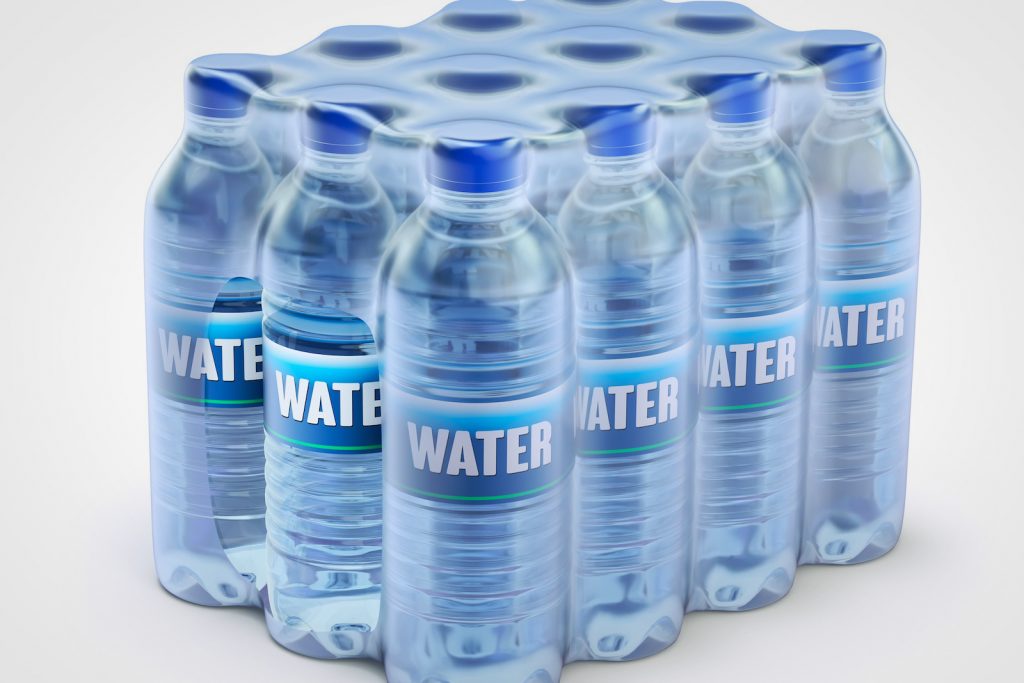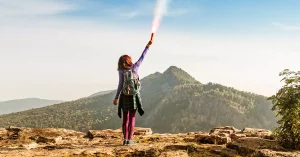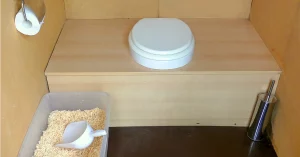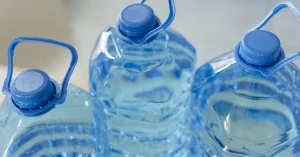Since human beings can survive for just three days without water, all proper survival plans include a stockpile of water as well as a plan to source and filter it if you are unavailable to use your stockpile. You will want to consider that you will not only need water for drinking, but also cleaning, using the bathroom, handwashing, and other sanitation processes. In many emergency situations, water can be shut off or contaminated indefinitely. To prepare for this, you should also include hand sanitizer and Wet Wipes for sanitizing purposes and handwashing so that you can preserve the water that you do have when it’s absolutely necessary. Water bottles are easy and readily available in stores during regular day to day life, and they are fairly inexpensive given how necessary they are to survive. This makes us ask exactly how long can you store bottled water before it goes bad? Well, we will show you it has a very long shelf life when stored properly and does not require any effort on your part to maintain.
How long does bottled water last after opening it?
According to the FDA, bottled water can last for years. The exact shelf life does depend on the way that it was packed in accordance with FDA guidelines. How long it will last depend on its purity as well as where it is stored; if it’s kept out of direct sunlight in a cool place, it can last much longer. Sunlight exposure can lead to chemical leaching, which is when heat causes the materials in the plastic to migrate into our drinking water. Experts explain that “BPA and BPS can contaminate the water in your bottle. Even when ingesting these chemicals in small amounts, they imitate estrogen, which can alter your endocrine system functions. Exposure to this harmful chemical can lead to chronic diseases, such as asthma, diabetes, fertility problems, and cancer. Studies on animals have shown that in-utero exposure can lead to impaired development of the immune system and brain, and the effects can be passed down to the next generation”.
Once you’ve opened the bottle, you’ll want to drink it in the next 4 to 6 days, assuming that you are closing the cap after drinking and it is stored in a cool place or the refrigerator. Closing the top will prevent bacteria from making its way in. This is because when you take a sip of water, you are introducing bacteria from your mouth as well as any food particles that could get into the water from the backwash. That’s why it is best to finish a bottle of water once you open it, and why it may “taste funny” if you come back to it in a week or so. It’s still perfectly safe to drink, but less ideal.
Does bottled water go bad?
Some experts believe that pure water never really expires, but if you are using tap water and boiling it in a bottle, that is a different situation. Bottled water bottles have expiration dates because of government guidelines; all consumable products are required to have an expiration date stamped on them. However, in this case it is interesting because it’s not the actual water that will go bad, but the bottle itself. The chemicals in the plastic water bottle have water in it, and the chemicals can leak into your drinking water after a long period of time. This doesn’t mean that the water is bad for you, but it can explain why you notice a change in taste or texture of a water bottle if it’s very old. According to FEMA, you can store tap water in a glass or metal container, but that should last about six months before you’ll want to change it out.
How to store bottled water to extend its shelf life?
The first thing you’ll want to do is make sure that you’re not storing water bottles in direct sunlight. If possible, keep it in a dark and cool place to extend shelf life as much as possible. Next, if you are opening a bottle, make sure that it is fully shut tight after each time you drink out of it. Refrigerating water bottles after they are opened will also help.
You also want to make sure that you do not stock cases of water on top of each other. While this may save space in the time being, the weight of the bottles will add up and put a lot of pressure on the bottom cases, causing them to leak. A good time to check your bottles will be every time you change the clocks for daylight savings. You will also want to make sure that you are storing your bottles away from any cleaning supplies or chemicals that could leak and contaminate your water.
Is it safe to freeze bottled water?
No, it is not recommended to freeze your water bottles because as the bottle is taken out of the freezer and begins to thaw, chemicals are migrating from the plastic material into your drinking water.
What are other methods to store water in the long term?
Reusable water bottles with a filter are a great option. Glass bottles are also a good option, as you’re still avoiding the chemicals in plastic that are associated with leaking. Stainless steel is another great option for maintaining temperature and avoiding chemicals.
As a last resort, boiling water helps to purify it if you are outside and in need of water. You can boil it for about 10 minutes to make sure it’s safe for drinking, and then let it cool on its own before drinking. Water purification tablets are another option if you have to purify the water that you already have, but they are not as effective in killing all bacteria.
Stockpiling water is likely a part of your survival plan. You want to make sure that you and your family are protected in the instance that there is no clean and safe drinking water available. Thus, in combination with your stockpile of bottled water, you can consider investing in a water filter as well as water purification tablets. Worst case scenario, you can learn how to purify water and make it safe for drinking through boiling. We need water for even more of our day to day practices than we realize; drinking, cooking, sanitizing, and washing ourselves. Especially in hot temperatures, you will likely need even more than you think. Some people veen choose to use more drastic measures such as rain barrels that can hold up to 50 gallons or a water tank. No matter which option you choose to be best for your family, a comprehensive water plan is an essential part of all survival preparation.




